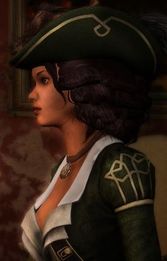
E3 is reaching its end, but thanks to Ubisoft we have been left with serious hints as to the future of Assassin's Creed. With the series making its next-gen debut this October with Unity, I'm taking the opportunity to take a detailed look back at one of the franchise's most lesser-played titles.
Originally unveiled as Assassin’s Creed III: Liberation and released exclusively to the PS Vita in 2012, this game is arguably one of the obscurer entries into the series. It features a female Assassin named Aveline who – exerting all of her skills in combat, disguise and infiltration – must expose a conspiracy concerning slaves in her hometown of New Orleans.
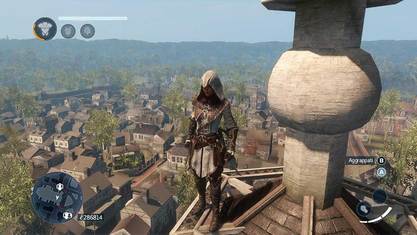
By dropping the “III” and thereby severing many of the connections it had to the mixed reputation of that game, Ubisoft have given Liberation its own identity as a console title. The game is therefore free to embrace its own distinctiveness which it illustrates in myriad ways. The story mainly takes place in Louisiana towards the end of the French and Indian War, sharing more or less the same time period of Assassin’s Creed III and – contrary to Achilles’ suggestion in that game that Connor is the only Assassin left alive in the new world – a very small Order of them operates out of New Orleans. There are only two of them actually, which is probably why Achilles doesn’t know about them. This Order comprises of just Aveline herself and the Order’s Native American mentor, Agaté. But when a mysterious Templar known as the Company Man arrives in New Orleans, Aveline realises that her Order is in now in immediate danger and makes it her business to weed out all those conspiring with the Templars – through use of three different personas – in order to ‘liberate’ the city.
Despite her mentor’s commands however Aveline also chooses to act on her own initiative and free slaves when she can, due to her own heritage as daughter to slaves, and she subsequently develops a reputation because of this. Her main mission to find and assassinate the Company Man sees her travel from New Orleans to the Bayou swamplands, to the iconic ruins of Chichén Itzá in Mexico and even, briefly, to a very snowy New York. The protagonist is certainly likeable enough although her motives for being an Assassin are truly one-dimensional, which is similar to Connor of Assassin’s Creed III, but there are a couple of other much more eccentric characters which help to balance Aveline’s mildly interesting personality, although none perhaps as iconic as either Ezio, Haytham or Edward. The rest of Liberation’s cast are somewhat clichéd and uninspired (such as the main antagonist or Aveline’s lovesick servant).
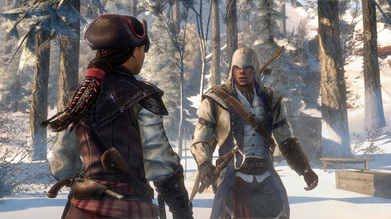
The atmosphere is nowhere near as stale as ACIII either and actually shares more in common with Black Flag, being more of a swashbuckling adventure and not taking itself massively seriously - at least not at first anyway! The game’s tone is helped along by an award-winning soundtrack composed by Winifred Philips, which runs circles around the one that features in ACIII. The diverse Haiti-inspired themes of Liberation share much more in common with those featured in role-playing games than any of the previous Assassin’s Creed installments to date, which makes it stand out a lot and helps to create much more immersion.
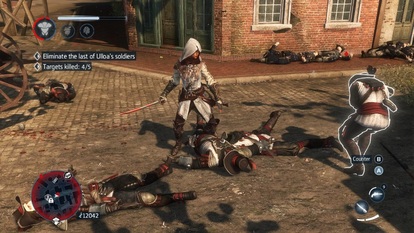
This can actually be a world of fun for a while and offers multiple methods of exploration and challenges, some unique to the persona. Each of Aveline’s different personas has its own advantages and drawbacks when exploring the world of New Orleans. For instance, wearing the Assassin garb adds more challenge to the game as Aveline will never be able to completely get rid of her notoriety, meaning that the guards are always suspicious of you. Whereas whilst using the Slave persona, although limited in combat, guards will not be apprehensive of Aveline at all as she navigates throughout the world, giving her further access to areas she would not have previously been able to visit.
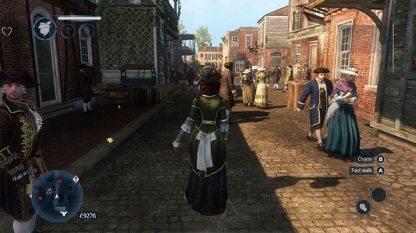
The Memory Sequences are quite short as well, which is annoying as the missions are often quite easy to get through, meaning that the entire game is quick to get through within around a day of playing which – although no uncommon for modern games – is unusual for an Assassin’s Creed game. The gameplay throughout feels generally solid, although the game did crash once when I accidentally ‘broke’ a mission by killing a load of rioters instead of helping them start their rebellion, which was as entertaining as it was annoying. Graphically the game is beautiful although - of course - less so than the more recent Assassin's Creed - Black Flag. In Liberation it is particularly the more scenic and tropical landscapes of the Bayou and Chichén Itzá, which work as a great contrast against the grey and often dismal portrayal of New Orleans (which, although beautiful in its own right, is portrayed as very bleak).
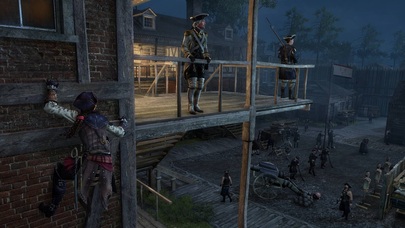
Assassin’s Creed Liberation HD provides hours of fun, engaging and unique entertainment – but, whilst all of the ideas are solid, there is room for improvement and expansion of them. However, as a standalone game in its own right, Liberation offers one of more unique and adventurous Assassin’s Creed experiences to date.

 RSS Feed
RSS Feed
